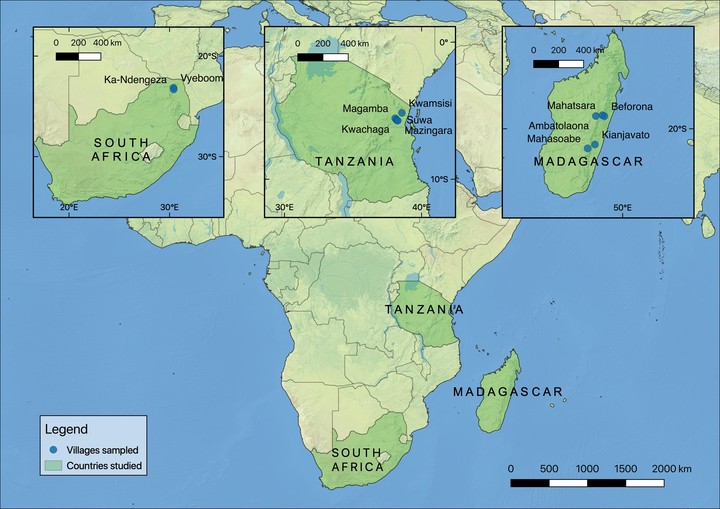A comparative assessment on rodent impacts and cultural perceptions of ecologically based rodent management in three Afro‐Malagasy farming regions

Abstract
Rodents generate negative consequences for smallholder farmers in Africa that directly impact household and livestock damage, food security and public health. Ecologically Based Rodent Management (EBRM) seeks sustainable solutions for the mitigation of rodent damage through assessments of rodent population dynamics, agro-ecosystems and socio-cultural contexts. We adopt a comparative approach across three rural Afro-Malagasy smallholder farming regions in South Africa, Tanzania and Madagascar to assess the household impacts of rodent pests and current perceptions and preferences associated with several rodent control measures. We conducted focus groups questionnaires and interviews in different study site locations. Rodents assert multiple impacts on Afro-Malagasy farmers demonstrating recurrent and emerging agricultural and household costs, and public health impacts. We identify a significant knowledge gap in educating communities about the application of different EBRM approaches in favour of acute poisons that are perceived to be more effective. Cultural issues and taboos also have a significant impact on the social acceptance of rodent hunting as well as biological control using indigenous predators. We advocate for an enhanced investigation of the socio-cultural beliefs associated with different rodent practices to understand the factors underlying social acceptance. A collaborative approach that integrates the perspectives of target communities to inform the design of EBRM initiatives according to the specific agro-ecosystem and socio-cultural context is necessary to ensure programmatic success.